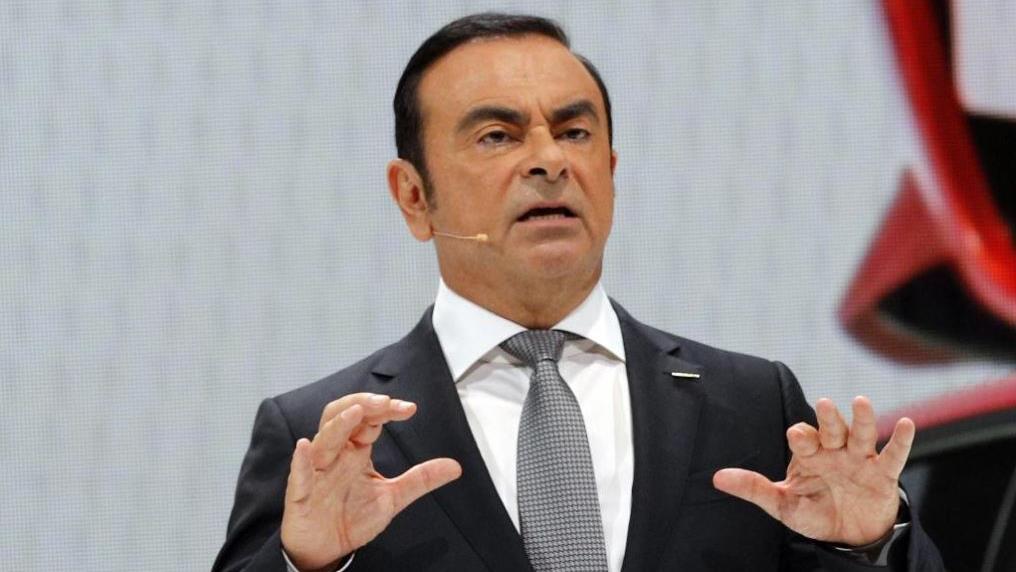TIMELINE: Key dates in the Ghosn affair, from arrest to flight
Jan 8 (Reuters) - Ousted Nissan boss Carlos Ghosn decided to flee Japan after learning his trial had been delayed until April 2021 and also because he had not been allowed to speak to his wife, sources close to Ghosn told Reuters.
Ghosn, 65, the former head of Renault-Nissan alliance, and one of the best-known figures in the car industry, faces four charges - which he denies - including hiding income and enriching himself through payments to dealerships in the Middle East.
CARLOS GHOSN ATTACKS JAPAN'S JUDICIAL SYSTEM IN FIRST APPEARANCE SINCE ESCAPE
Following are some of the main dates in the case from his arrest 14 months ago to his audacious escape last week:
Jan. 8, 2020:
Ghosn's lawyers opened fire on Nissan hours before he was scheduled to hold a highly anticipated news conference, accusing it of using a "flawed, biased" internal probe to engineer his arrest.
Jan. 7, 2020:
Japanese prosecutors issued an arrest warrant for Ghosn's wife for alleged perjury, as officials stepped up efforts to bring the fugitive car industry boss back to face trial.
Jan, 2, 2020:
Lebanon received an Interpol arrest warrant for Ghosn, while Turkey launched an investigation into his daring escape from Japan via Istanbul.
Dec. 31, 2019:
Ghosn said he had fled to Lebanon to escape a "rigged" justice system in Japan, raising questions about how one of the world's most-recognized executives had slipped away while on bail.
Authorities monitored his movements while out on bail including with video cameras near the entrance to his home in Tokyo. Ghosn, who was only allowed to use a computer set up in his lawyer's office, also surrendered his passports.
CARLOS GHOSN LASHES OUT AT US LAW FIRM AFTER ESCAPE FROM JAPAN
It was unclear how Ghosn, who holds French, Brazilian and Lebanese citizenship, was able to orchestrate his departure from Japan.
He left his Tokyo residence after a private security firm hired by Nissan stopped monitoring him, three sources familiar with the matter told Reuters.
A Turkish private jet operator said Ghosn used two of its planes illegally in his escape from Japan, with an employee falsifying lease records to exclude his name from the documents.
April 25, 2019:
Ghosn walked out of a Japanese jail, freed on bail for a second time, after agreeing to curbs on contacting his wife as he awaited trial.
April 4, 2019:
Japanese prosecutors arrested Ghosn again on suspicion the former Nissan boss had tried to enrich himself at the automaker's expense, in another dramatic twist that his lawyers said was an attempt to muzzle him.
GET FOX BUSINESS ON THE GO BY CLICKING HERE
This marked the fourth time that prosecutors had arrested the once-feted executive.
March 6, 2019:
Ghosn, who had been detained for more than 100 days, left a Tokyo prison on a $9 million bail, slipping past reporters in a face mask and moving closer to mounting a defense against financial misconduct charges that he has called "meritless."
Surrounded by security guards and dressed in a workman's uniform and a blue cap, Ghosn's face was obscured by thick glasses and the surgical-type mask.
Jan. 8, 2019:
Ghosn declared his innocence in his first public appearance since his arrest, telling a Tokyo court he had been wrongly accused of financial misconduct.
CLICK HERE TO READ MORE ON FOX BUSINESS
Ghosn was brought into the courtroom in handcuffs and a rope around his waist, wearing a navy suit and white shirt without a tie, and looking thinner than before his arrest, with his dark hair showing grey roots.
Dec. 21, 2018:
Japanese prosecutors arrested Ghosn again on new allegations of making Nissan shoulder $16.6 million in personal investment losses, dashing chances he would be released on bail before Christmas.
Dec.10, 2018:
Tokyo prosecutors indicted Ghosn for allegedly under-reporting his income. They also re-arrested him on allegations of understating his income for three more years through March 2018.
Nov. 19, 2018:
Japanese police arrested Ghosn when he arrived at a Tokyo airport in his private jet and prosecutors accused him of under-reporting his salary by roughly half over a five-year period through March 2015.
(Editing by Keith Weir and Mark Potter)




















